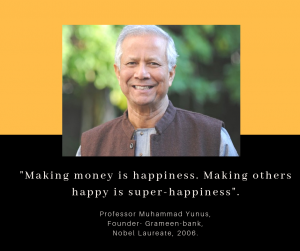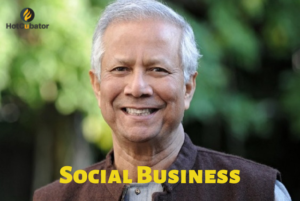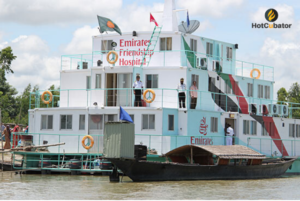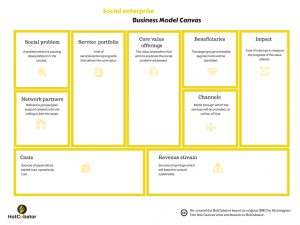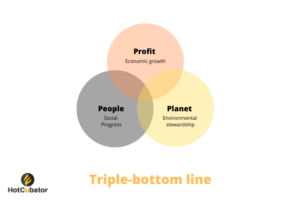
The traditional face of Bangladesh has remained popular for a myriad of burgeoning problems such as – gender inequality, corruption, pollution, traffic and list might go on. But one would be wrong to decipher Bangladesh just in terms of these measures because the paradigm is shifting and Bangladesh has started to transform as one of the most dominant Asian force also known as ‘Asian Tiger’. The steady GDP growth rate of 7.1% is astonishingly positive and shows that Bangladesh is set to dominate a number of areas of economic growth. The market-based economy of Bangladesh is considered as one among the fastest growing economies in the world to date. In nominal terms, Bangladesh is the 39th largest in the world. Bangladesh is the second largest Ready-Made Garments (RMG) exporter of the world after China. Information communication is also becoming an area where Bangladesh is becoming a major exporter in the world.There is another area where Bangladesh has become a prominent name in the world and in fact has received global accolades innumerable times. Bangladesh is known as the hotbed of social enterprises. A number of the social enterprise Business models in Bangladesh has revolutionized their respective sectors and became a global pioneer. Muhammad Yunus, Sir Fazle Hasan Abed, Runa Khan these are world renowned names now-a-days. Here is a short summary of the two prominent social enterprises in Bangladesh. It should be noted that, social enterprise although is quite popular in Bangladesh but their operational structure is quite different in Bangladesh.
Founded by the Professor Muhammad Yunus in 1976 Grameen Bank received its institutional identity in 1983 as a separate bank. It is a micro-credit bank which has listed its name as one of the most innovative business models in the world. Grameen Bank first introduced the micro-finance model, which captured the attention of many social support ventures in Bangladesh and overseas. The bank started with the intention to help the poor village women who were struggling to get loans and were being exploited by money launderers in rural areas in Bangladesh. Professor Yunus started to loan the women with from his pocket that started with loans as low as $27. Slowly, he observed that the method was able to benefit the entire village people, which inspired him to scale it up and transform into an institution. Grameen Bank has helped more than nine million borrowers of which 97 per cent are women by disbursing more than US$18 billion. Presently, Grameen operates with 21,751 staff serving 8.81 million borrowers in 81,392 villages. The success of the Grameen model has been celebrated in many countries other than Bangladesh, as it has helped millions of people who were stuck in poverty, deprivation and social marginalisation. Professor Yunus was awarded the Nobel Peace Prize jointly with the Grameen Bank in 2006 for his extraordinary efforts towards eradicating poverty from Bangladesh.
BRAC was founded in 1972 and later became the largest development organisation in the world. BRAC started with the motivation to alleviate poverty. Now, this enterprise has helped 135 million people in countries including Haiti, The Philippines, Sudan, Pakistan, Indonesia, Nepal, Myanmar, Uganda, Tanzania, and Sierra Leone. BRAC today operates in 11 countries with over 100,000 employees. The founder of BRAC, Sir Fazle Hasan Abed, received the KCMG title from the Queen of England for services in tackling poverty and empowering the poor in Bangladesh and globally. He is also referred to as one of The World’s 50 Greatest Leaders by Fortune magazine. BRAC offers it services across a wide variety of social issues including micro-finance, educational development, rural health, disaster relief and vocational training. BRAC has several award-winning social initiatives including a collaboration with Nike’s Girl Effect campaign to empower teenagers in Uganda and Tanzania.
Further reading:
Kickul, J., & Lyons, T. S. (2016). Understanding social entrepreneurship: The relentless pursuit of mission in an ever changing world. London: Routledge.
Mortoza, G. (2006). BRAC: The Vision of Fazle Hasan Abed. In: Maola Brothers, Dhaka.
Yunus, M. (2010). Building social business: The new kind of capitalism that serves humanity’s most pressing needs. Dhaka: The University Press Limited.
Yunus, M. (2017). Social business entrepreneurs are the solution. In The Future Makers (pp. 219-225): Routledge.

